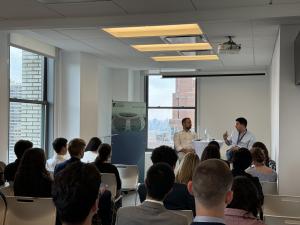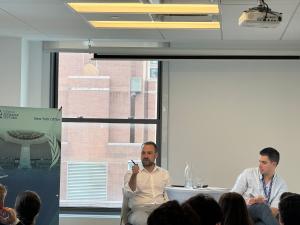With as much as 90 percent of young people living in developing countries, many of which are embroiled in long lasting conflicts, youth involvement in the United Nations grows in importance, both in terms of equitable representation and promoting sustainable peace.
As grassroots initiatives become increasingly regarded as an effective and legitimate method to peacebuilding and conflict mediation, in tandem so does the importance of youth inclusion. Demonstrated by the adoption of the Youth, Peace, and Security agenda, the input of youth leaders on both an international and local level has dramatically shifted from a want to a must. However, many obstacles remain on the path to meaningful youth inclusion.
To further explore the future of UN youth engagement, KAS New York invited UN Assistant Secretary-General for Youth Affairs, Felipe Paullier and young professionals from the UN and Permanent Missions of Member States to discuss the barriers, strides, and ambitions needed to strengthen youth involvement in the UN.
Discussion primarily focused on three points:
-
Accountability within youth inclusion. A point to which participants paid particular attention, as it is often seen that youth are tokenized and not viewed as legitimate players in decision making circles.
-
Youth should be seen as a partner in particular with regard to peace and security.
-
The legitimacy of the UN depends on meaningful youth engagement. Although strides have been made, the UN and its structure will not be a trusted partner for the youth if the youth are not fully engaged and involved in UN processes and institutions.




